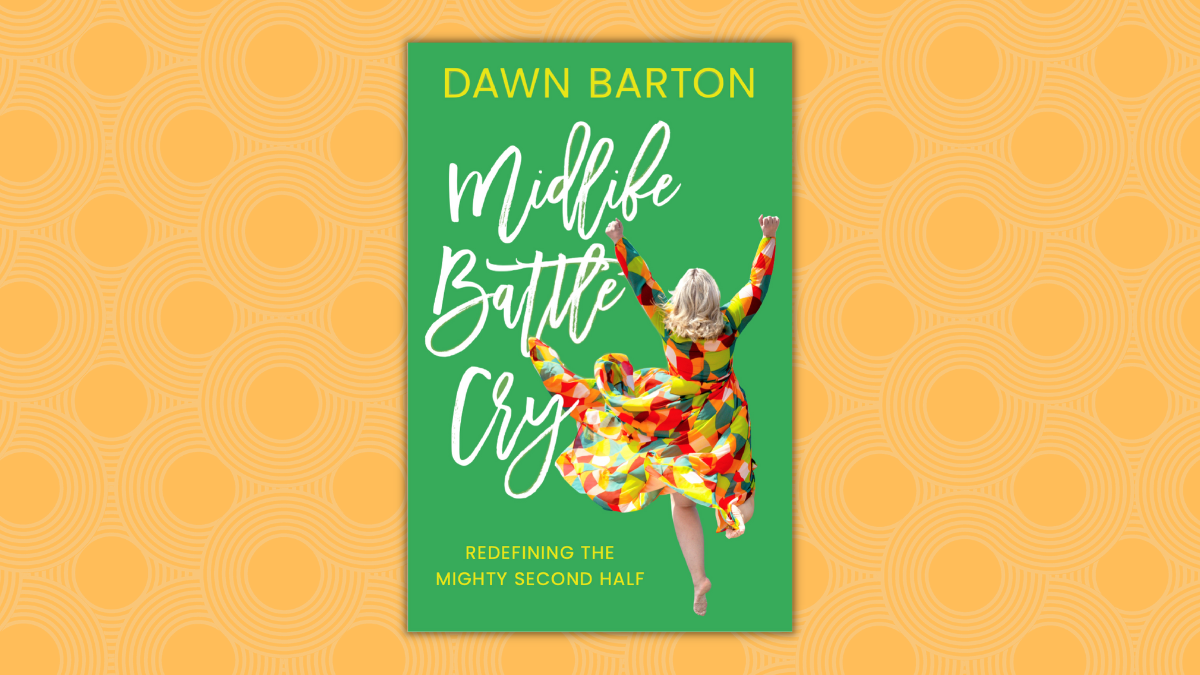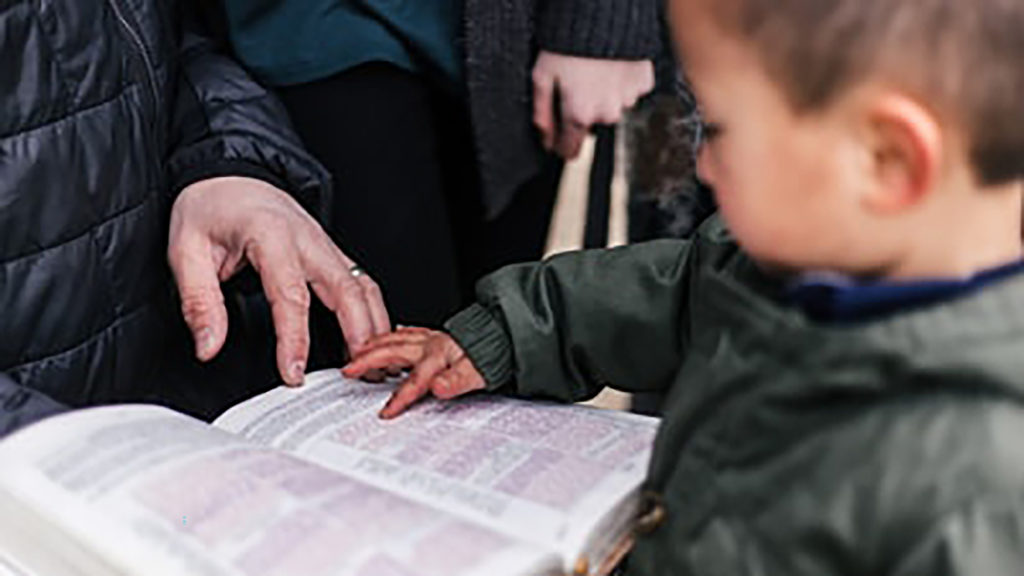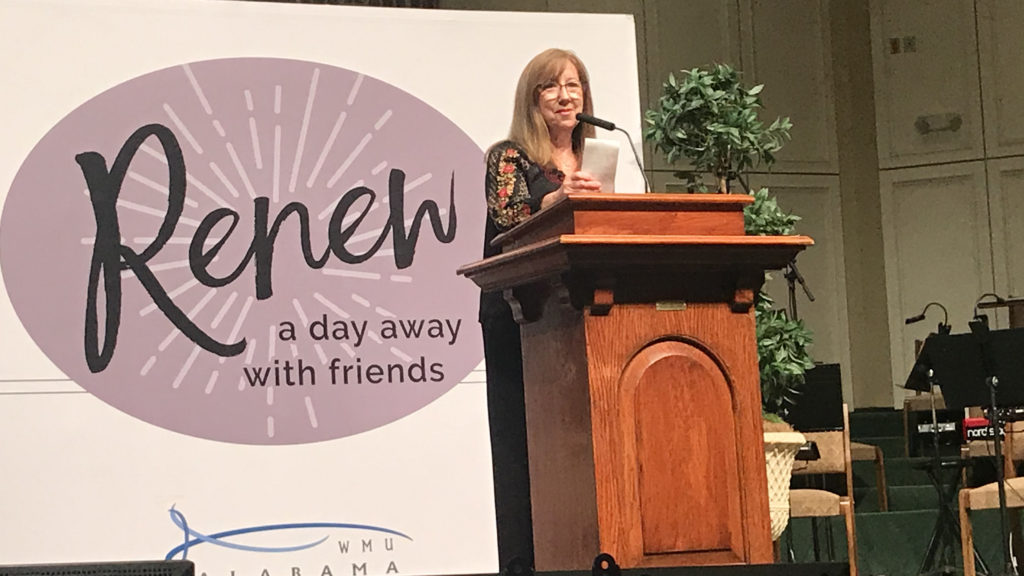Though midlife can be full of stress, author and speaker Dawn Barton shows in her recent release “Midlife Battle Cry: Redefining the Mighty Second Half” that just because this can be a time of unwelcome change, it doesn’t have to be.
In “Midlife Battle Cry,” Barton combines an upbeat message and moving personal anecdotes with incredible insight on ways to tackle this transitional time of life.
However, she didn’t start this journey lightheartedly.
As Barton reached midlife, she began to feel invisible and irrelevant and as though God had forgotten her. After a few months of having a pity party and grieving all she had wanted to do in her life, she said she “decided to pivot and really, fiercely participate in my own rescue.”
“Midlife Battle Cry” was the result.
“I wasn’t finding books that I felt were funny and at the same time included this battle cry to move forward,” Barton said. “I wanted it to be humorous, like a conversation with a best friend — a great big hug — but also like somebody was behind you pushing you out the door like, ‘Come on! The world is not done with you!’”
Unfinished
Throughout this time of enlightenment, she discovered her friends felt the same way.
“We’re literally the best we’ve ever been,” she said. “We’re the wisest. We know more. We’ve failed more. We’ve gotten up more. We’ve loved more.”

“We have survived 100% of what we’ve been through — and yet we sort of pull back,” Barton said.
Barton realized that God was not finished with her or her friends. He hadn’t said that He’d check out for this season and call them when their time is up. God’s purpose doesn’t change, no matter what age we are.
While writing “Midlife Battle Cry,” Barton included not only her own experience but also the new concepts she had learned.
She knew about the “sandwich generation” — women who are caretakers of aging parents while still parenting their children. However, her research showed we are one of the few countries that doesn’t practice multigenerational living where three generations live together or in close proximity.
Barton never envisioned being such a caregiver. But after her mother had a brain rupture and her mother-in-law needed more support than she had, Barton and her husband, Craig, bought property that could accommodate their parents.
Suddenly, Barton and her family found themselves living a multigenerational life. Even through the hard work, she enjoyed the benefits.
“We as women take the stance that we can do it all on our own, whereas in other countries, they do it together — collectively as a village, in a sense. I think it’s so beautiful to have a 16-year-old with her 70- and 80-year-old grandparents. It’s so beautiful to watch their wisdom,” she said.
More to come
Barton also learned about rest, comparing this need to that of a miserable, exhausted toddler whose mother knows that a nap would make everything better.
“I feel like that’s what God does with us, especially with seasons of busyness, of chaotic life stuff. He calls us into seasons of quiet. It doesn’t mean that He doesn’t love us. He loves us so much that just like a mother to a toddler wants him to rest, He wants us to rest,” Barton said.
At first, “Midlife Battle Cry” was only geared toward women in those midlife years. After its release, Barton realized that it’s affecting other ages.
“I cannot tell you how many women in their 70s have told me that it shifted them and they loved it,” Barton said. “I think it’s the same principle — the point being God is not done with you until you’re dead in the ground.”
God is never ‘done’
Even physical or health limitations don’t mean that God is done. These women can still have purpose, just in a different way.
“It may not look the same that it did in your 40s, 50s and 60s, but it doesn’t mean you can’t have a profound impact in one-on-one moments or in praying for people,” she said.
However, through discovering and living out the principles in “Midlife Battle Cry,” Barton realized that it all came down to one main idea.
“We have this invisible line in our minds and on one side of it are all of the great miracles of our lives — our kids were born, our careers, our great bodies, our marriages — all the things that happened to, say, the left side. And we believe that the right side of that line is going to be devoid of as much richness or as many miracles — all of that.
“The reality is, if we stay in a mental place believing that, it’s exactly what happens. But we live believing that there are as many beautiful, rich miracles to come as have already happened. Sometimes God doesn’t reveal gifts to us until different seasons in life, but if we live expectant of blessings and miracles, we get them.”
Barton’s first book, “Laughing Through the Ugly Cry,” is about the time of hardship that preceded “Midlife Battle Cry.” Both can be found wherever books are sold. To learn more about Barton, go to dawnbarton.com. To connect with her on social media, look for DawnRBarton.






Share with others: